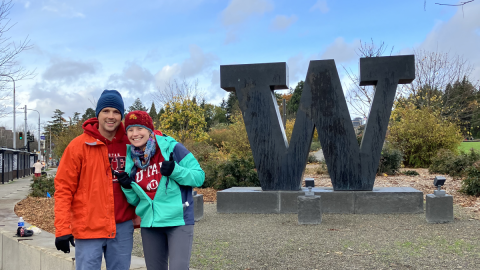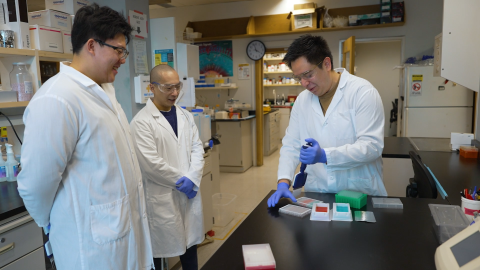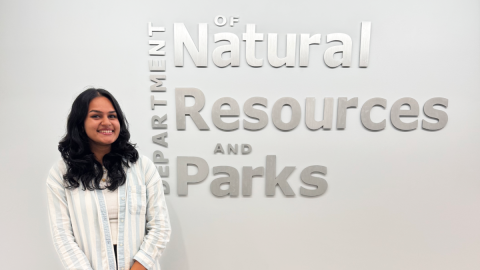I am excited to graduate this spring with my PhD in Environmental and Occupational Hygiene from the UW Department of Environmental & Occupational Health Sciences (DEOHS).
My research looks at how exposure to air pollution affects our cardiovascular and respiratory health. As an undergraduate student majoring in preventive medicine in China, I worked with an air pollution research group and became very interested in exposure science.
Our group relied on just six fixed-site air pollution monitors to estimate pollution exposures in a city of more than 10 million people. I knew it was not a good way to do exposure assessment.
When I looked for a PhD program, I wanted a department with diverse study and research opportunities. That’s why the PhD program in DEOHS was so attractive to me. I feel so lucky to have a lot of support and hands-on experiences as part of my research in DEOHS.
Investigating how air pollution affects health
For my dissertation research, I work with my adviser, Dr. Edmund Seto, and research partners in China to investigate how exposure to traffic-related air pollution when walking, driving or taking buses or subways may impact cardiorespiratory health differently.
I designed a randomized, double-blind, crossover intervention study using wearable sensors to track personal air pollution exposures and measured health outcomes of study participants.
I am also examining why people choose different modes of transportation and how the built environment impacts those choices. Our research partners include the Sichuan Center for Disease Control and Prevention and the Chinese Research Academy of Environmental Science.
While my research is grounded in field work, I really enjoy applying what I’ve learned to real-world issues. I feel excited to see how different instruments and tools can help me answer air pollution-related questions. And I feel a sense of achievement when I can solve environmental health issues with experience learned from faculty, staff and fellow students at DEOHS.
Making research connections
As a graduate student, I attend the annual conference of the International Society for Environmental Epidemiology every year with funding support from the DEOHS Environmental Health Student Support Fund.
Attending conferences is very important to me, especially as I plan to continue in academia as an environmental health researcher. Conferences help me connect with other researchers, share my research more broadly and keep up-to-date on the latest developments in my field.



